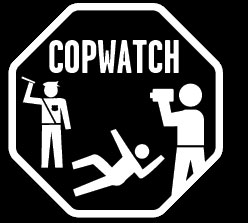 The main issue I take with the likes of Kingsley’s article on the "Psycho-Civilized Society" and Foucault’s adoption of the panopticon metaphor is the lack of weight given to the possibility for resistance. Sure, technologies of surveillance have become increasingly sophisticated in the 21st century, but so too have our methods for subverting them. A data entry worker who has their productivity monitored according to the number of keystrokes they enter per hour may periodically hold down one key for a few minutes in order to achieve an artificially high reading, while shoplifters have circumvented security tag detectors through the use of booster bags, for example.
The main issue I take with the likes of Kingsley’s article on the "Psycho-Civilized Society" and Foucault’s adoption of the panopticon metaphor is the lack of weight given to the possibility for resistance. Sure, technologies of surveillance have become increasingly sophisticated in the 21st century, but so too have our methods for subverting them. A data entry worker who has their productivity monitored according to the number of keystrokes they enter per hour may periodically hold down one key for a few minutes in order to achieve an artificially high reading, while shoplifters have circumvented security tag detectors through the use of booster bags, for example.On a related note, I was surprised during this week's lecture by some people’s apparent acceptance of employers using their employees’ Facebook pages as evidence to justify disciplinary action in certain situations. Where do we draw the line? Surely it’s a slippery slope that we don’t want to start down, for what initially begins as the use of Facebook for investigating legitimate cases of underperformance may progress into its use for finding an excuse to unfairly dismiss an employee disliked by management.
Another class member’s suggestion that it’s only fair that employees can conversely surveil their employer’s pages also sparked my interest, for it seems that this is already taking place. For example, the blog post What Does Your Facebook Profile Say About You? refers to the potentially damaging act of a senior executive posting snaps of a lavish holiday during a period of cost cutting and job losses. The key difference here, of course, is power. I’m pretty sure that hitting my boss up about his hypocritical vacationing (we’re all affected by the recession?) is a sure-fire way to bump me up the redundancy list.
So what does c ount as effective resistance? The widespread availability and affordability of prosumer camcorders, video capable mobile phones and other communication technologies has given rise to forms of ‘counter-surveillance’, whereby the traditional surveillers become the surveilled. For example, volunteer-based Cop Watch groups in Canada and the United States film instances of police misconduct and abuse for the purpose of ‘policing the police’ (an example of what Steve Mann terms “sousveillance”). The case of Rodney King is an infamous example of how such methods can level the surveillance hierarchy and hold authoritative organisations at least partially accountable for their actions.
ount as effective resistance? The widespread availability and affordability of prosumer camcorders, video capable mobile phones and other communication technologies has given rise to forms of ‘counter-surveillance’, whereby the traditional surveillers become the surveilled. For example, volunteer-based Cop Watch groups in Canada and the United States film instances of police misconduct and abuse for the purpose of ‘policing the police’ (an example of what Steve Mann terms “sousveillance”). The case of Rodney King is an infamous example of how such methods can level the surveillance hierarchy and hold authoritative organisations at least partially accountable for their actions.
However, Gary Marx reminds us that we shouldn’t be too quick to extol the virtues of the “democratisation of surveillance”, which has ultimately fed greater suspicion, anxiety and defensiveness within society. Not to mention ill-appointed resource consumption. An occurrence of ‘counter-counter-surveillance’ springs to mind, where police in Eugene, Oregon sp ied on a Cop Watch press conference using videotaping technology. Note the descriptor, press conference. I think most of us can think of better uses of police time and resources! Yet, with the popularity of social networking sites such as Facebook (and applications which claim to reveal who has been viewing your profile), the ludicrous cycle of monitoring each other monitoring each other seems set to continue in multiple facets of our lives.
ied on a Cop Watch press conference using videotaping technology. Note the descriptor, press conference. I think most of us can think of better uses of police time and resources! Yet, with the popularity of social networking sites such as Facebook (and applications which claim to reveal who has been viewing your profile), the ludicrous cycle of monitoring each other monitoring each other seems set to continue in multiple facets of our lives.
No comments:
Post a Comment
Note: Only a member of this blog may post a comment.